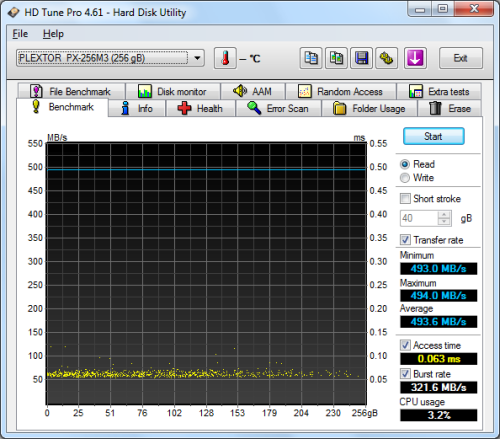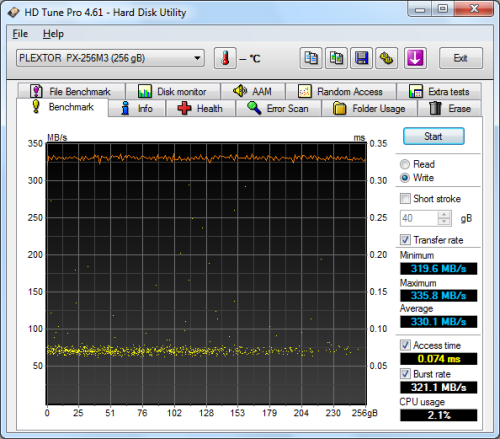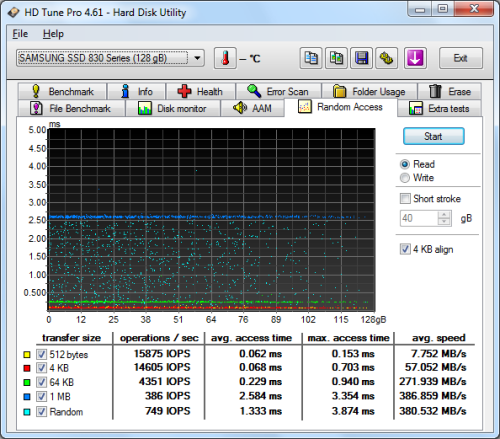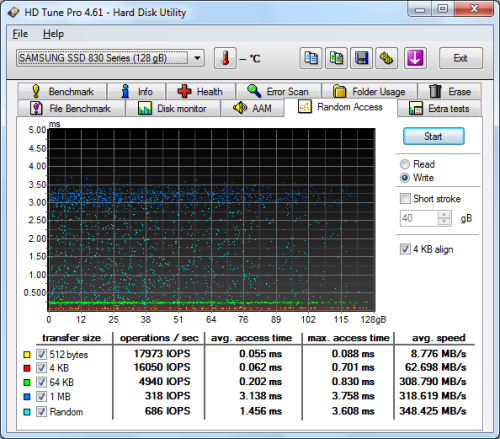AS SSD:
AS SSD is a relatively new benchmark designed specifically for solid state drives. The application contains five synthetic tests used to determine the sequential and random read and write performance of a drive.
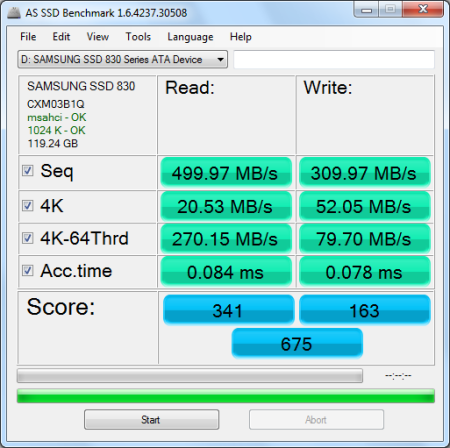
AS SSD also includes a copy benchmark. This test copies an ISO (two large files), program (many small files) and game (small and large files), returning the speed and duration of each.
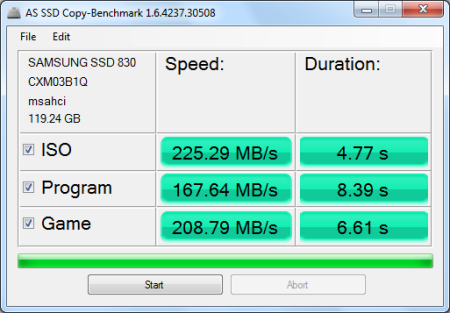
HD Tune Pro 4.61:
Next, I ran a series of tests using HD Tune Pro. This hard disk utility measures a drive's performance by testing its sequential read and write speeds as well as its access time, burst rate and CPU usage. For this review, I'm also going to use it to benchmark the SSD 830's random read and write speeds, random access times and the number of operations per second.
The 830 Series performed fairly well when benchmarked with HD Tune. The drive had average read and write speeds of 494.2 MB/s and 326.6 MB/s, respectively, as well as a burst rate of 328 MB/s when reading.
The SSD 830 didn't disappoint when doing random reads and writes. When reading 4KB blocks, the drive reached 14605 IOPS and had an average speed of 57.052 MB/s. The SSD 830 was even faster when writing, reaching 16050 IOPS with an average speed of 62.698 MB/s.
Iometer:
Lastly, I ran a series of tests using Iometer. This tool can be configured to benchmark a number of things. In this case, I used it to measure the SSD 830's read and write speeds and the number of operations per second. The tests were run using random bytes and a queue depth of 3.

The SSD 830's performance was very similar to what we saw in our other tests. The drive was able to read at 523.08 MB/s and write at 307.48 MB/s which wasn't enough to top the Patriot Pyro SE and Kingston HyperX when reading and writing highly compressible, repeating data. However, the SSD 830 was faster than both drives when writing incompressible, random data.
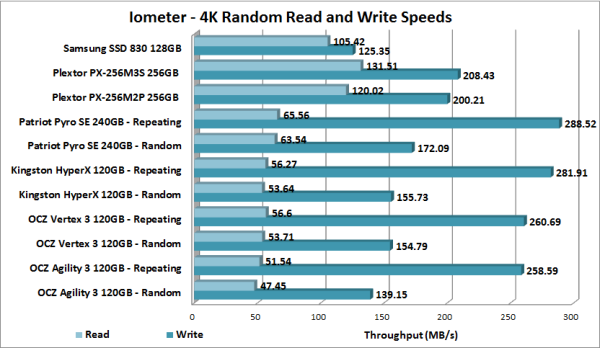
The SSD 830 performed fairly well when doing random reads and writes. In our tests, the drive was able to write at 125.35 MB/s and read at 105.42 MB/s. This wasn't enough to top the SandForce-based drives when doing random writes. However, the SSD 830 was about 50 MB/s faster than the Kingston HyperX and OCZ Vertex 3 when reading random data.
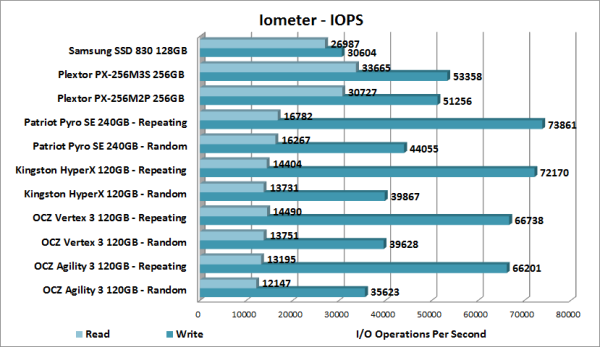
According to Samsung, the 128GB SSD 830 is capable of 80,000 IOPS when reading and 30,000 IOPS when writing 4K blocks. In our tests, the drive reached 26,987 random read IOPS and 30,604 random write IOPS. Increasing the queue depth had very little impact on the SSD 830's random write performance. However, with the queue depth set to 32, the drive was able to reach 67,871 random read IOPS.



